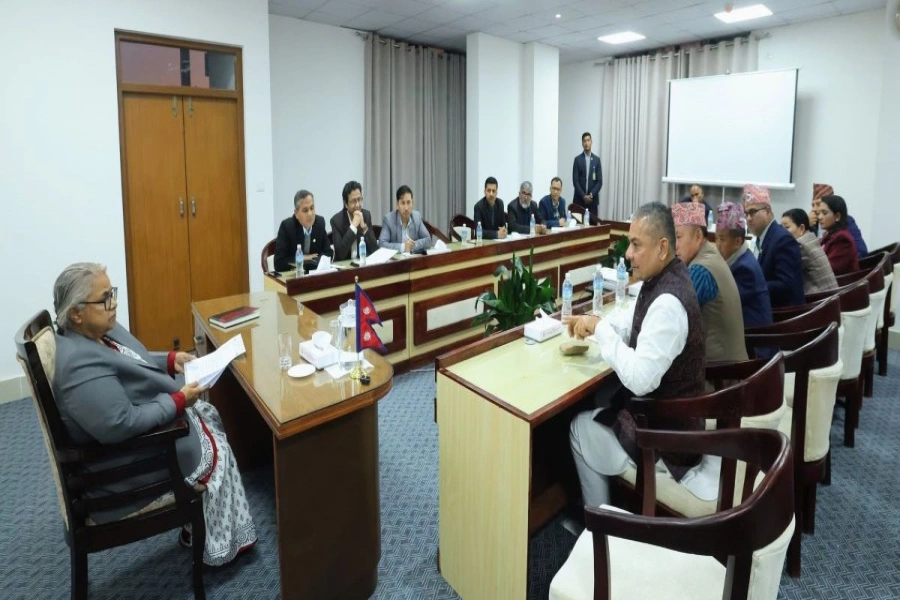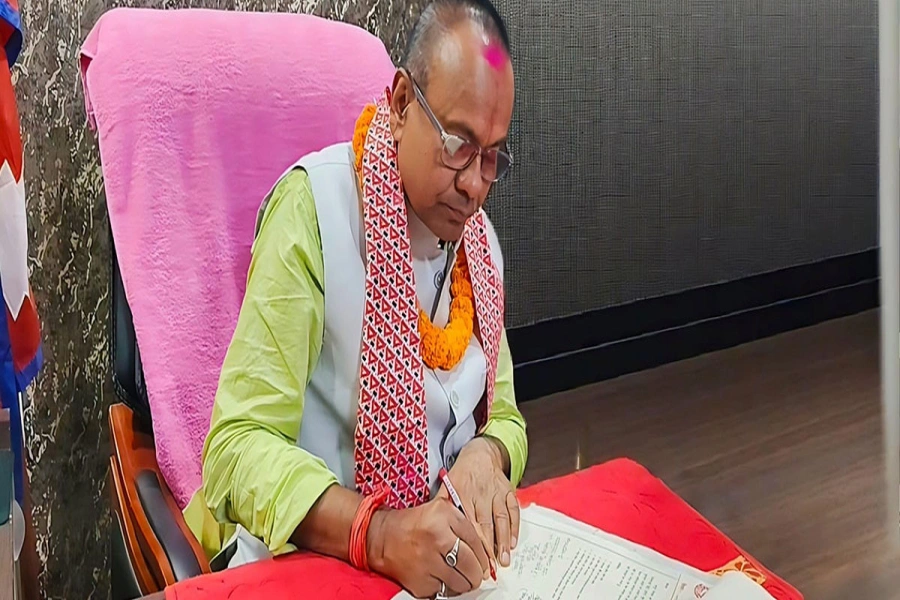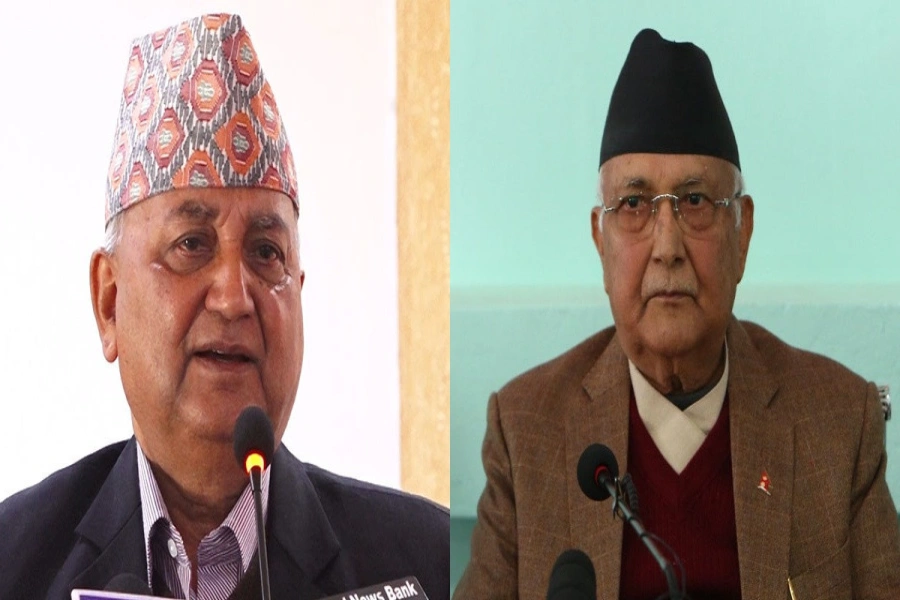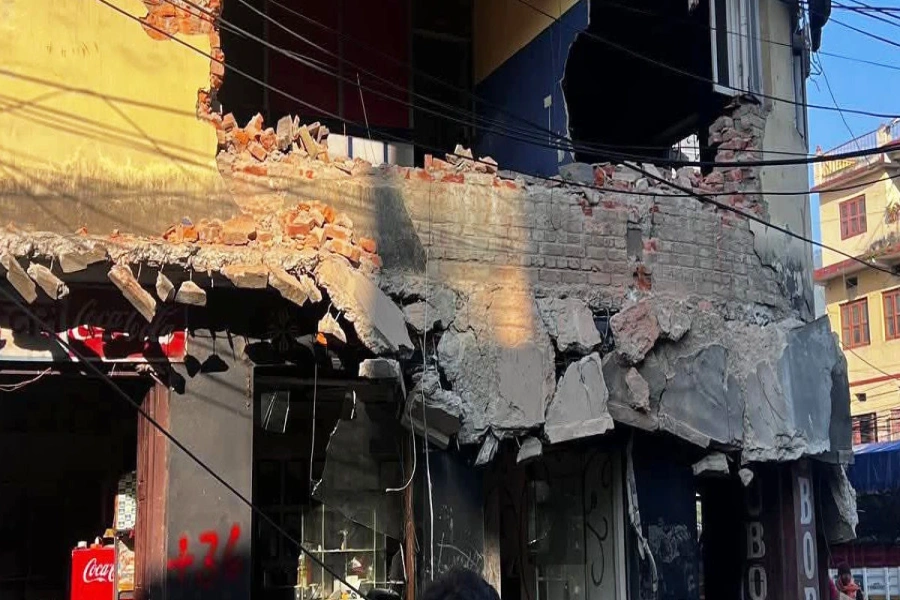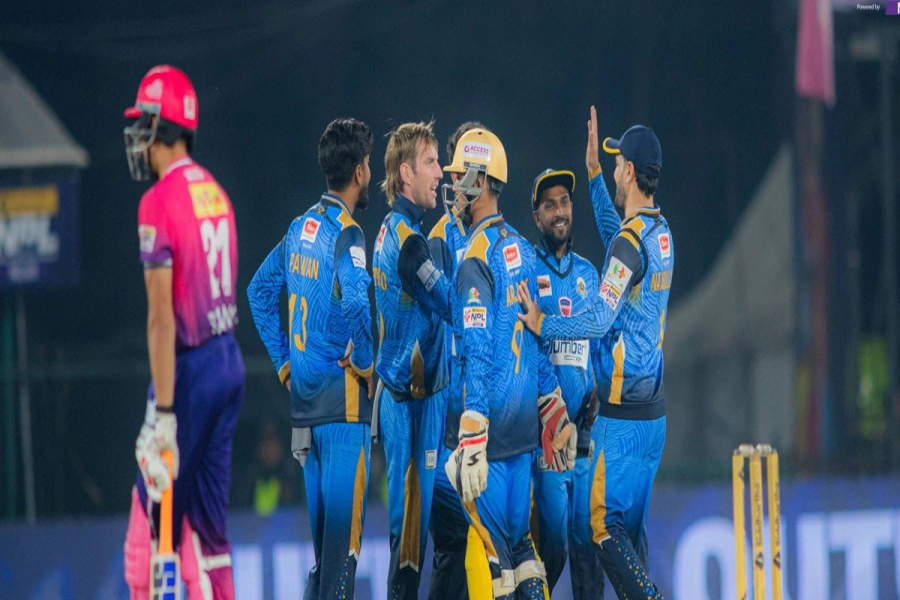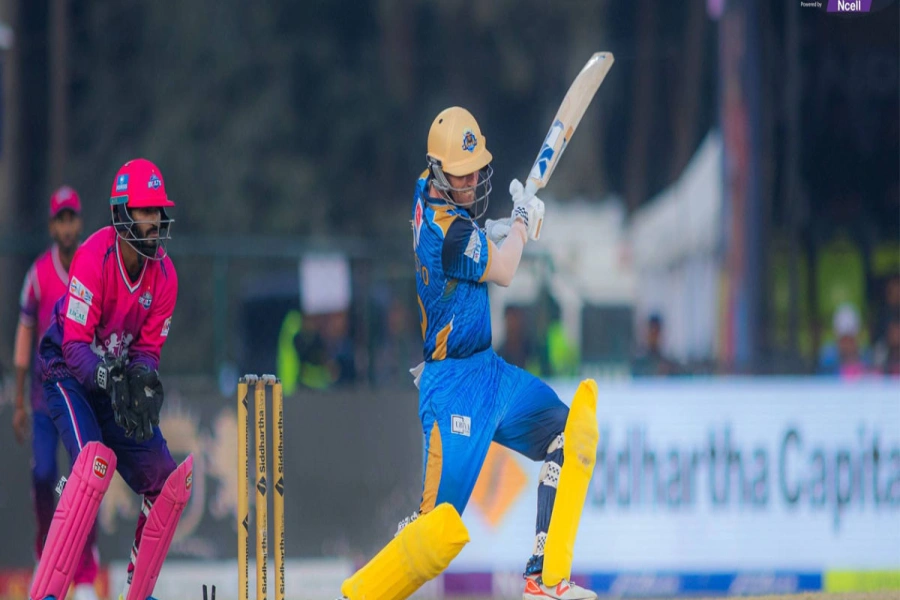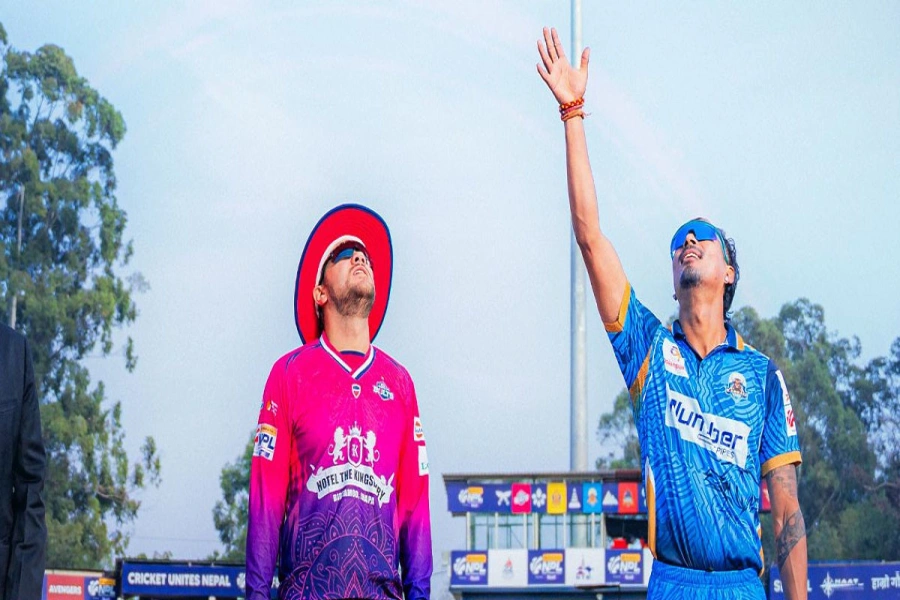BRUSSELS, Feb 8: Several world leaders lined up Monday to walk a diplomatic tightrope that could mean the difference between war in Ukraine and an uneasy peace there as Russia’s menacing actions on the border of its neighbor continued unabated.
Here’s a look at what is happening where and why:
FROM MOSCOW TO WASHINGTON
Russian President Vladimir Putin was back at the Kremlin in Moscow following his diplomatic foray to get support from China over the weekend during the Winter Olympics. Putin was hosting the prime meeting of the day Monday as his French counterpart Emmanuel Macron was on a mission to de-escalate tensions.
President Joe Biden and German Chancellor Olaf Scholz met at the White House to shore up Western resolve against what they see as Russian aggression against Ukraine. Biden explicitly singled out the pipeline project known as Nord Stream 2, which would bring additional Russian gas to Europe, and could be certified by Germany to operate this summer. “There will no longer be Nord Stream 2” if Russia further invades Ukraine, Biden said. Scholz didn’t mention the pipeline but said Germany and the U.S. are “absolutely united” in their intention to impose punishing sanctions on Russia if it invades Ukraine.
U.S. Secretary of State Antony Blinken and EU foreign policy chief Josep Borrell earlier said the United States and Europe remained unified on not only the nature of the Russian threat to Ukraine but the consequences that Russia would face if it invaded. They also defended the increasingly dire warnings that a Russian invasion may be imminent.
Western estimates that more than 100,000 Russian troops have massed near Ukraine are increasing worries that an offensive could be only days away.
At the same time, borders of NATO nations that are close to Russia are also being shored up. Germany, which is often accused of being too lackadaisical toward Moscow, and Britain added to that effort on Monday and NATO itself also has plans.
FRANCE AND RUSSIA DISAGREE, BUT MORE TALKS TO COME
Living with fear

Russian President Vladimir Putin and French President Emmanuel Macron wrapped up more than five hours of talks by registering their disagreements but also emphasizing the need for more talks.
Putin noted that the U.S. and NATO have ignored Moscow’s demands for NATO to keep Ukraine and other ex-Soviet nations out, refrain from placing weapons there and roll back alliance forces from Eastern Europe. He nevertheless signaled his readiness to continue the negotiations.
Putin scoffed at Western descriptions of NATO as a defensive alliance, saying sarcastically that “people of Iraq, Libya and Afghanistan have had learned it from their own experience.”
He warned that Ukraine’s accession to NATO could trigger a war between Russia and the alliance.
“If Ukraine becomes a NATO member and moves to reclaim Crimea, European countries will automatically be drawn into a military conflict with Russia,” Putin said. “You will be drawn into that conflict beyond your will. There will be no winners.”
Macron said he had a “substantial, deep” discussion with Putin, with a focus on conditions that could help de-escalation.
“We tried to build converging elements,” he said. “The upcoming days will be crucial and deep discussions together will be needed.”
He added that it’s Europe’s duty to find a solution to try to rebuild good-neighborly ties with Russia.
AFTER FRENCH MOVE, GERMANY STEPS UP
France and Germany have worked in tandem before. Seven years ago, they were essential in creating a peace deal for eastern Ukraine in a bid to end fighting between Ukrainian government forces and Russia-backed separatists that erupted in 2014 following the Russian annexation of Ukraine’s Crimean Peninsula.
Ukrainian officials have called that peace deal unworkable and divisive, but it did tamp down the fighting.
Germany has been criticized for being slow and halfhearted in its approach to the Ukraine crisis but on Monday, Europe’s economic powerhouse was moving on different fronts. As Chancellor Scholz got ready for his meeting with Biden, Foreign Minister Annalena Baerbock had meetings in Kyiv with Ukrainian Prime Minister Denys Shmyhal and was set on Tuesday to visit the “line of contact” with pro-Russia separatists in eastern Ukraine.
Germany’s show of solidarity comes amid tensions over Berlin’s refusal to send weapons to Ukraine. Yet Baerbock said “we stand — without ifs or buts — by the territorial integrity of the country and at the side of the people in Ukraine.”
Baerbock added that “together, we will react with hard and very concrete measures to any further Russian aggression against Ukraine.”
To show that the Franco-German diplomatic effort is far from over, Scholz will meet Macron and their Polish counterpart Andrzej Duda to discuss the Ukraine crisis on Tuesday. That will allow the three leaders to compare notes after Scholz’s meeting with Biden and Macron’s trips to Russia and Ukraine.
MORE TROOPS BOLSTER NATO’S EASTERN FRONT
Britain says it is sending 350 troops to Poland as part of efforts to bolster NATO forces in eastern Europe amid a Russian military build-up near Ukraine. Defense Secretary Ben Wallace says the troops will join 100 Royal Engineers already in Poland.
Germany decided to send more troops to Lithuania, further reinforcing its presence on NATO’s eastern flank, in a move that comes amid criticism of Berlin’s refusal to send weapons to Kyiv. Defense Minister Christine Lambrecht said she will add up to 350 troops to a NATO battlegroup it leads in the Baltic nation, where it already has some 500 soldiers.
Lambrecht said, with the move, Germany is “sending a very clear signal of unity to our allies. We can be relied on and we are showing that with this strengthening of the battlegroup.”
Scholz on Thursday will host the leaders of Lithuania, Latvia and Estonia, the three Baltic states who feel the heat from Moscow, before traveling to Ukraine and Russia next week.
NATO Secretary-General Jens Stoltenberg also said the alliance is weighing a more permanent military presence in southeast Europe.
“We are considering more longer-term adjustments to our posture, our presence in the eastern part of the alliance,” Stoltenberg told reporters after talks with Poland’s president. “If Russia really wants less NATO close to the borders, they get the opposite.”
HOW IS EUROPE GOING TO FIND MORE GAS?
When it comes to feeling the heat during winter, Europe is particularly dependent on Russia’s energy supplies. The EU is also complaining that Moscow has not been forthcoming with additional gas shipments to Europe when market logic, with its current sky-high prices, would make it a no-brainer.
Over 40% of Europe’s gas supplies come from Russia. EU foreign policy chief Josep Borrell said on the eve of Monday’s EU-US energy meeting in Washington that “Russia has already in the past used energy supplies for political purposes.” Now the 27-nation bloc desperately needs to diversify its gas sources, and is finding a helping hand in Washington.
“The United States will do everything we can to help ease any disruptions to Europe’s energy supply, and indeed, we already are,” Blinken said, adding that Washington is in talks with major producers and nations around the world.





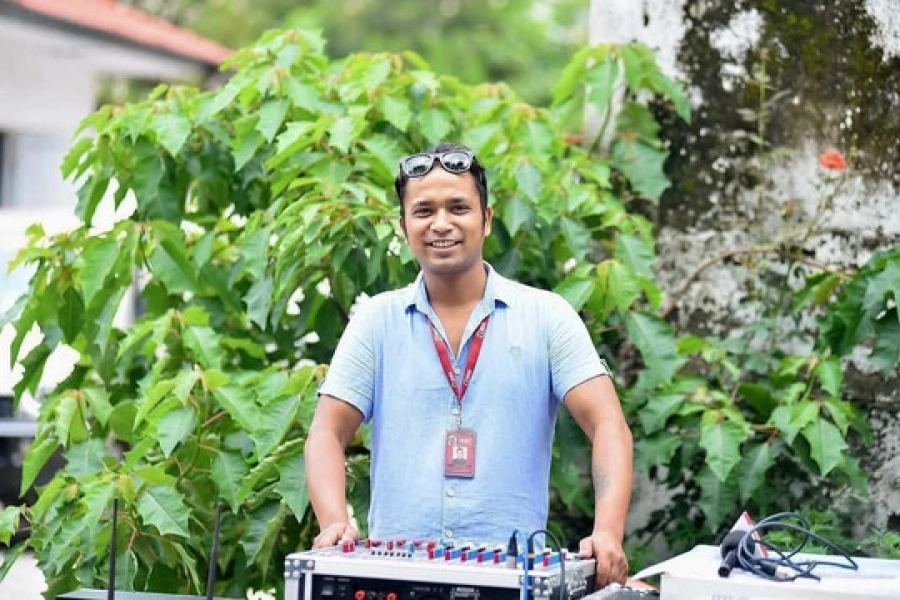





_20220306071554.jpeg)





